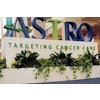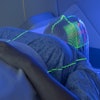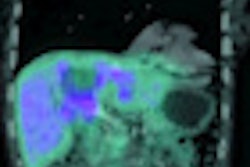A customized patch treatment for basal cell carcinoma completely destroyed facial tumors without surgery or major radiation therapy in 80% of patients studied, according to results presented at the Society of Nuclear Medicine (SNM) annual meeting under way in Miami Beach, FL.
Researchers in India have developed a treatment using a skin patch laced with the phosphorus-32 (P-32) radioactive isotope, which delivers a radiation spot treatment that can safely and easily kill skin tumors after several applications, according to the study's lead author, Priyanka Gupta, PhD, of the All India Institute of Medical Sciences.
The study enrolled 10 patients between the ages of 32 and 74 diagnosed with facial basal cell carcinoma lesions located near their eyes, on the nose, and on the forehead. All were treated locally with the P-32 patch for three hours on an outpatient basis. The custom patches were reapplied on the fourth and seventh days after the first treatment for another three hours each, delivering a fragmented radiation dose of 100 Gy to the cancerous lesions only.
Biopsies were performed three months following treatment completion and repeated again in the third year. Eight out of 10 patients were cancer-free, Gupta reported. He advised that additional research will need to be conducted before the P-32 patch can be provided for general clinical use to treat basal cell carcinoma and similar superficial skin cancers, acknowledging the small patient cohort size of the study.
Between 2 and 3 million cases of nonmelanoma skin cancer occur every year, according to estimates from the World Health Organization (WHO).
The skin patch offers the potential of being a simple, inexpensive treatment, and it could prove an alternative to surgery if skin grafting is a challenge at the location where the cancer is located.



















